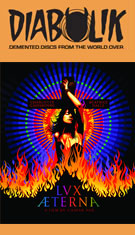

Color, 2019, 51 mins. 6 secs.
Directed by Gaspar Noé
Starring Charlotte Gainsbourg, Béatrice Dalle, Abby Lee, Félix Maritaud, Karl Glusman, Clara 3000, Claude-Emmanuelle Gajan-Maull
Yellow Veil Pictures (Blu-ray) (US RA HD), Arrow Video (Blu-ray) (UK RB HD), Alamode Film (Blu-ray) (Germany RB HD), Potemkine (Blu-ray & DVD) (France RB/R2 HD/PAL) / WS (2.35:1) (16:9)
By this point 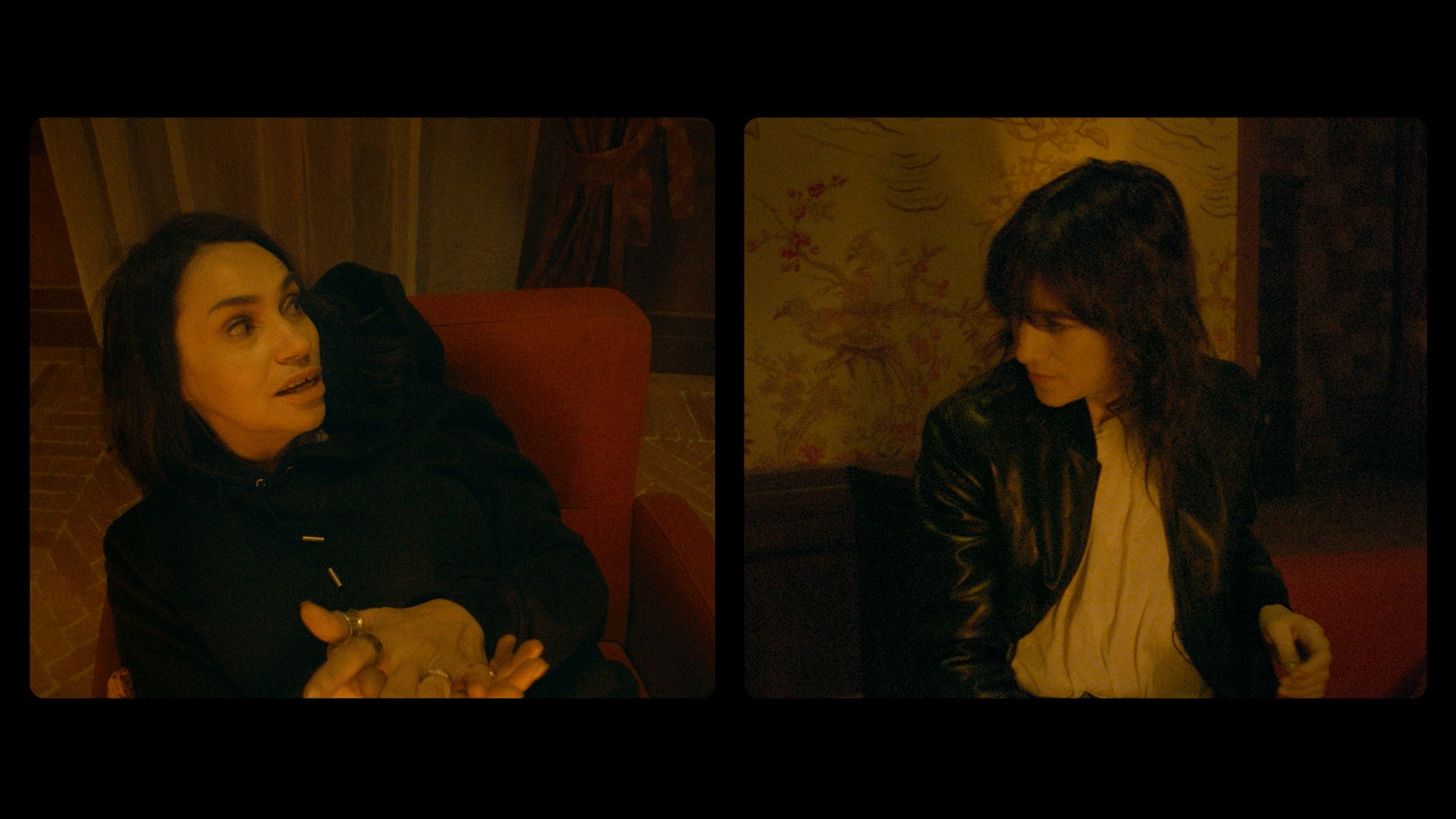 anyone who's seen more than one film by French cinema bad boy
anyone who's seen more than one film by French cinema bad boy 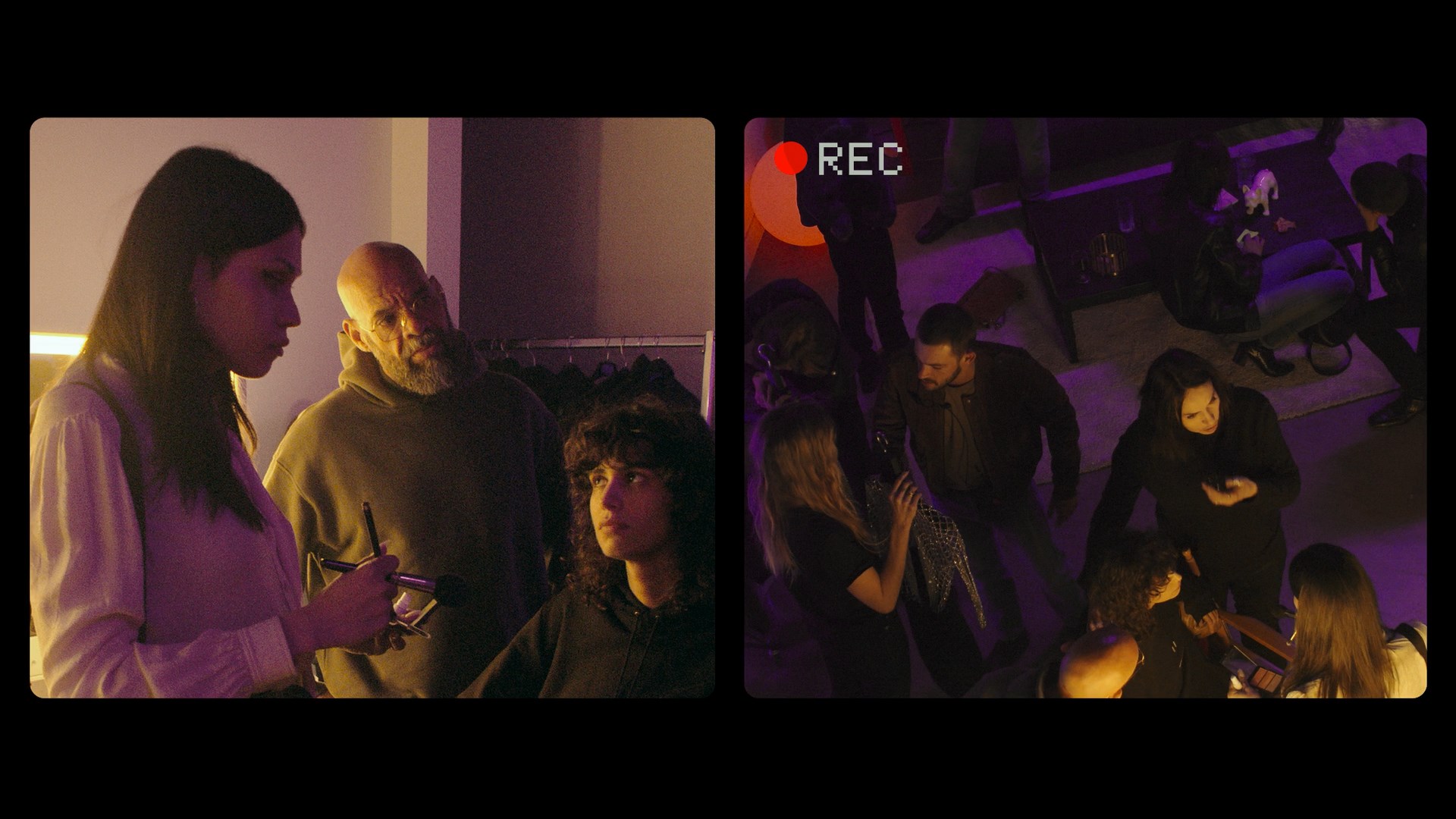 Gaspar Noé has some idea of what to expect, be it his early breakthroughs like I Stand Alone and Irreversible to his diffuse and explicit experimental projects Into the Void and Love. Shot quickly just before the pandemic in less than a week, Lux Æterna rests somewhere between a feature and short film, a kind of bridging piece between his dance troupe nightmare Climax and his harrowing split-screen study of old age, Vortex. Mostly though it's a tribute to his two leads, a pair of France's best and most fearless actresses who seem to be having a blast here with a project that was improvised between them and Noé as a kind of meditation on the nature of filmmaking.
Gaspar Noé has some idea of what to expect, be it his early breakthroughs like I Stand Alone and Irreversible to his diffuse and explicit experimental projects Into the Void and Love. Shot quickly just before the pandemic in less than a week, Lux Æterna rests somewhere between a feature and short film, a kind of bridging piece between his dance troupe nightmare Climax and his harrowing split-screen study of old age, Vortex. Mostly though it's a tribute to his two leads, a pair of France's best and most fearless actresses who seem to be having a blast here with a project that was improvised between them and Noé as a kind of meditation on the nature of filmmaking.
Essentially divided into three parts during a night on the set of the witchcraft-themed God's Work, the film begins with star Charlotte Gainsbourg and first-time director Béatrice Dalle (both playing fictionalized versions of themselves) having a loose and often funny conversation about witch burning, sexual mishaps on set, film history, and the frustrations of their field of work. Then we get a larger picture of the production including English-speaking actress Abby Lee (who's distraught over not being 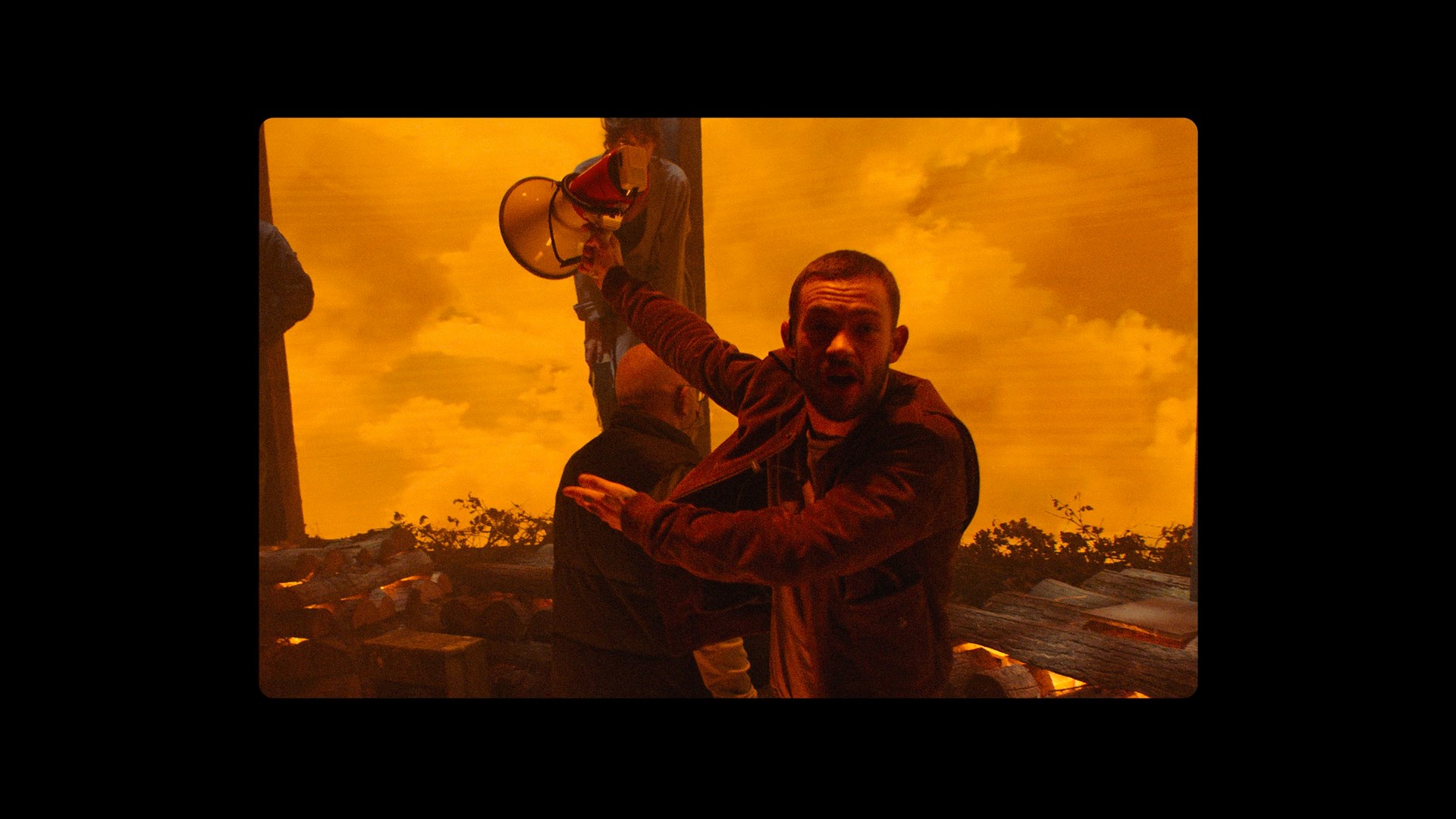 able to understand the crew), harried assistant director Félix Maritaud, and pest Karl Glusman (returning from Love) who keeps trying to pitch his own project to
able to understand the crew), harried assistant director Félix Maritaud, and pest Karl Glusman (returning from Love) who keeps trying to pitch his own project to 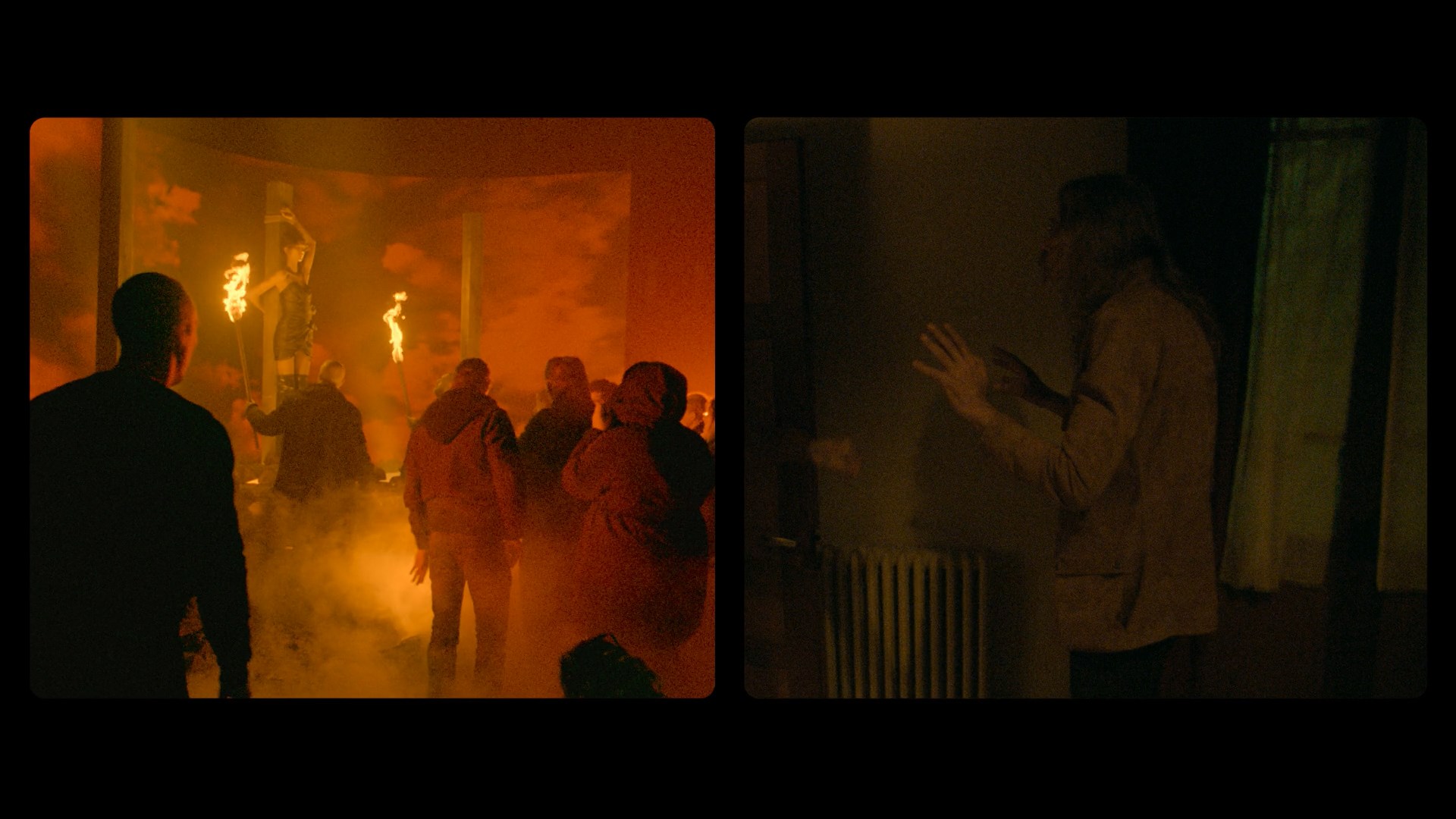 increasingly hostile reactions. Then it's time for the actual shoot with a triple stake burning, which comes right after Gainsbourg has a disturbing phone call about her daughter and soon explodes way out of control. Along the way you get quotes from Dostoyevsky, Dreyer, Fassbinder, Godard, etc. that invite your own interpretations about creative sadism, religion, and gender parity.
increasingly hostile reactions. Then it's time for the actual shoot with a triple stake burning, which comes right after Gainsbourg has a disturbing phone call about her daughter and soon explodes way out of control. Along the way you get quotes from Dostoyevsky, Dreyer, Fassbinder, Godard, etc. that invite your own interpretations about creative sadism, religion, and gender parity.
Despite the subject matter, this is actually Noé's least explicit film in terms of imagery; the only edgy material you really get is a a couple of raunchy verbal anecdotes from Dalle early on and some discreet partial nudity during the finale. However, stylistically this may be his most unrelenting project to date with a final 15 minutes that understandably drove more than a few viewers out of the theater at Cannes. Be warned, if you have epilepsy or don't like strobe effects, you'll be in for a very rough ride with this one. Heck, even those with the cast-iron eyeballs may want to approach with caution. The improvisatory nature of the production (which includes a fun reference to Dalle directing Vortex) means it doesn't really follow a traditional linear plotline; you won't really get much in the way of a coherent payoff here as much as a compete breakdown of the act of watching a film itself.
For what appears to be its global English-friendly Blu-ray debut, Arrow Video outfitted this film with 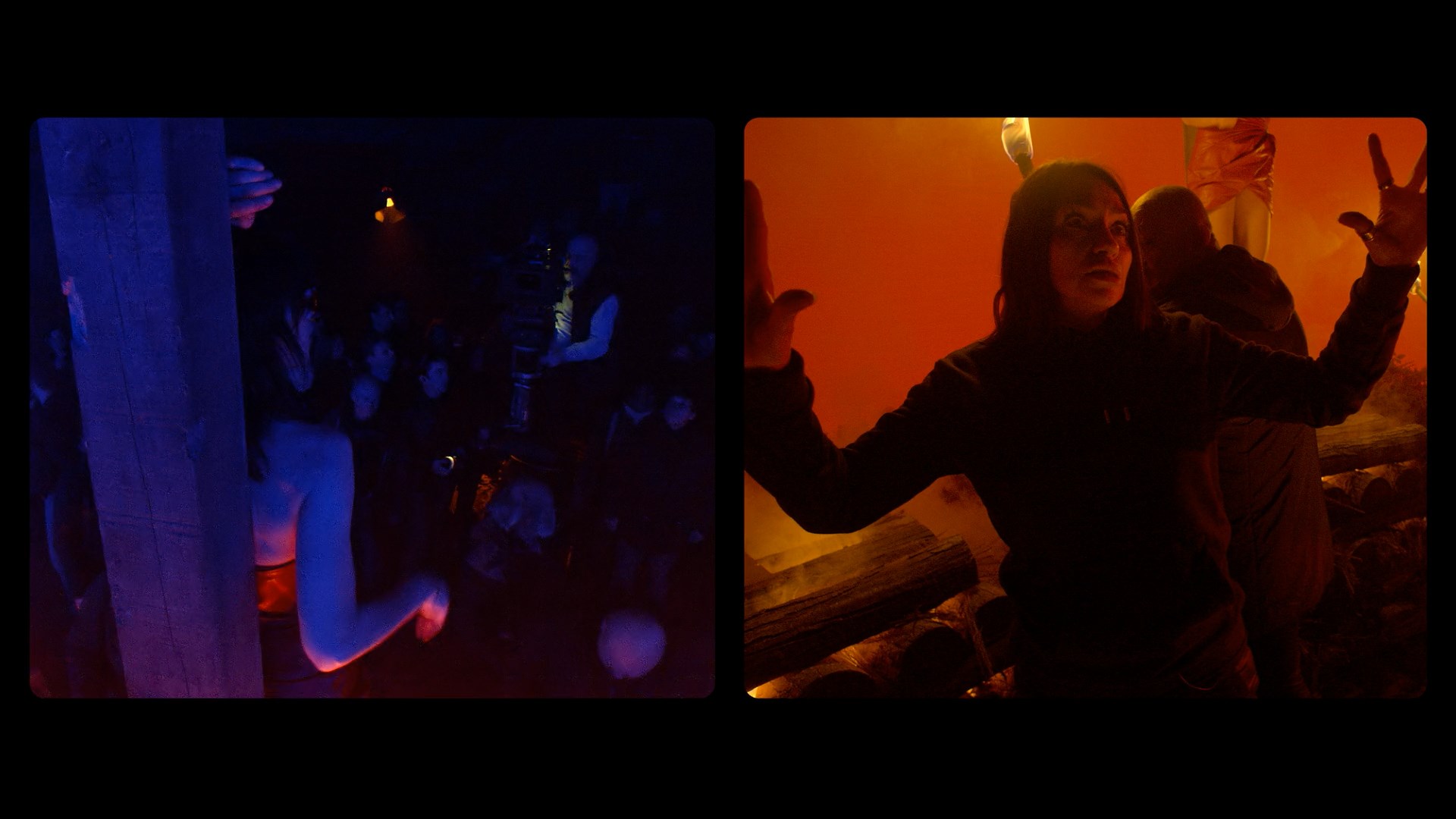 a nicely stacked U.K. release with a wealth of extras. The film itself looks great with wildly stylized colors throughout that get more vivid over the course of the running time, eventually going berserk during
a nicely stacked U.K. release with a wealth of extras. The film itself looks great with wildly stylized colors throughout that get more vivid over the course of the running time, eventually going berserk during 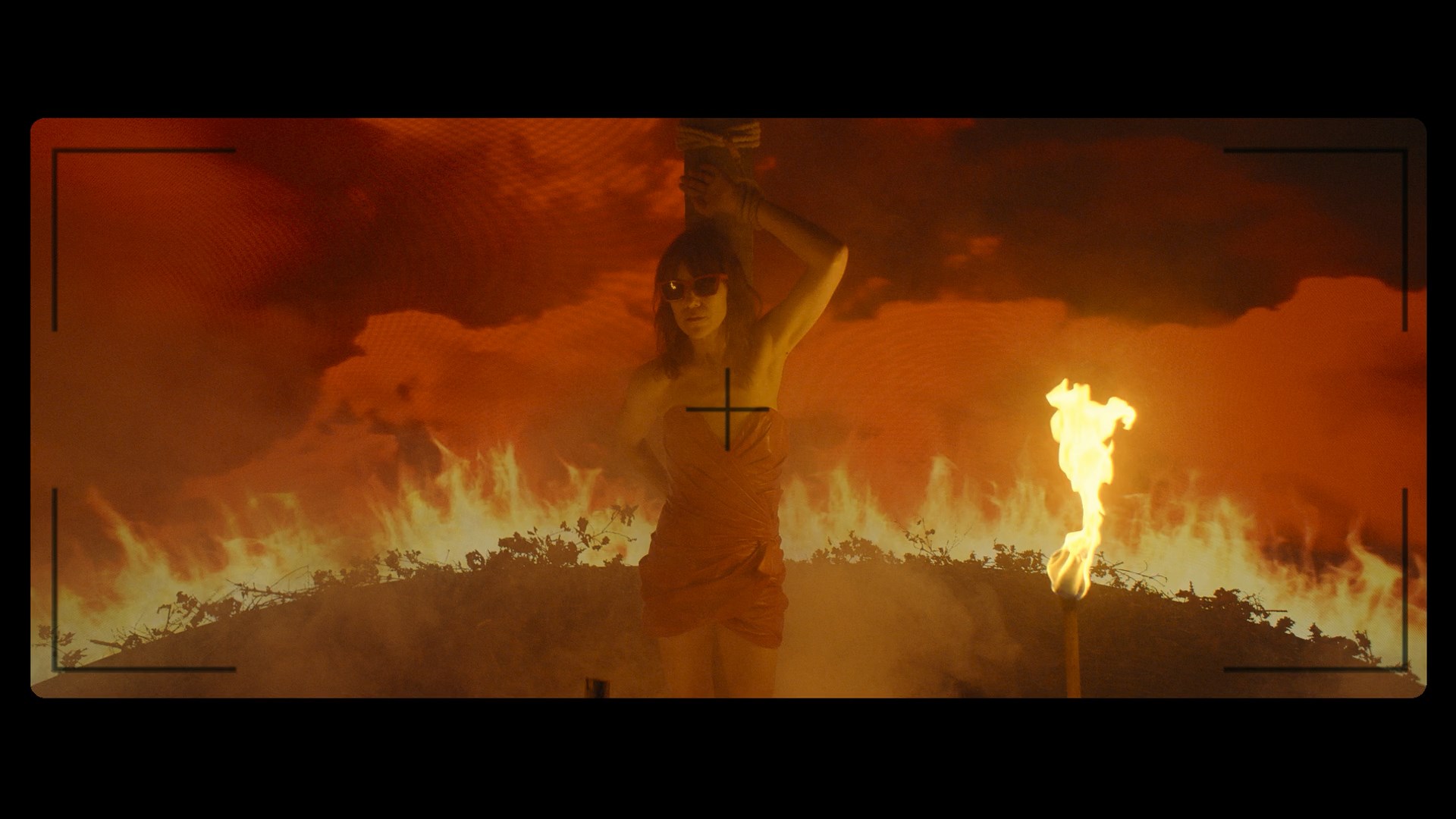 that retina-scorching finale. French DTS-HD MA 5.1 and LPCM 2.0 audio options are included (with optional English and English SDH subtitles), both of which sound great and mostly kick in during the last half hour or so with a lot of surround activity. Noé and Dalle provide a new, very amusing audio commentary in which they riff on the participants, the quote choices, cinematic references, the chemistry between Dalle and the much "shier" Gainsbourg, among other topics. Their rapport is wonderful here, and hopefully they'll work together again. A second track by Kat Ellinger goes more into the portrayals of witchcraft in film and history, the filmmaker nods, her take on the film's Cannes notes, the presence (of lack) of a feminist agenda, and its place in Noé's larger body of work and French cinema. The visual essay "Lux in Extremis" (21m27s) by Miranda Corcoran surveys the film's visual approach within the context of the director's sensory-battering tendencies, as well as its echoes of other witch-themed films. Tony Conrad's 1966 short film The Flicker (29m58s) is perfect if you haven't already been wiped out by the main feature, showing off an intense strobing technique that inspired Noé. If you can sit through all of it without looking away or hitting the fast forward button, kudos! "Lux in Tenebris" (6m3s) features on-set photos by camera operator, title designer, and longtime collaborator Tom Kan (who also pops up in the film itself), followed by two trailers and an additional tiny image gallery of poster art. The first pressing also comes with an insert booklet featuring a new essay by Neil Mitchell.
that retina-scorching finale. French DTS-HD MA 5.1 and LPCM 2.0 audio options are included (with optional English and English SDH subtitles), both of which sound great and mostly kick in during the last half hour or so with a lot of surround activity. Noé and Dalle provide a new, very amusing audio commentary in which they riff on the participants, the quote choices, cinematic references, the chemistry between Dalle and the much "shier" Gainsbourg, among other topics. Their rapport is wonderful here, and hopefully they'll work together again. A second track by Kat Ellinger goes more into the portrayals of witchcraft in film and history, the filmmaker nods, her take on the film's Cannes notes, the presence (of lack) of a feminist agenda, and its place in Noé's larger body of work and French cinema. The visual essay "Lux in Extremis" (21m27s) by Miranda Corcoran surveys the film's visual approach within the context of the director's sensory-battering tendencies, as well as its echoes of other witch-themed films. Tony Conrad's 1966 short film The Flicker (29m58s) is perfect if you haven't already been wiped out by the main feature, showing off an intense strobing technique that inspired Noé. If you can sit through all of it without looking away or hitting the fast forward button, kudos! "Lux in Tenebris" (6m3s) features on-set photos by camera operator, title designer, and longtime collaborator Tom Kan (who also pops up in the film itself), followed by two trailers and an additional tiny image gallery of poster art. The first pressing also comes with an insert booklet featuring a new essay by Neil Mitchell.
Later in 2022 followed by a U.S. theatrical run times with the release of Vortex, Yellow Veil Pictures released its own two-disc Blu-ray set featuring the same excellent scan and that aggressive DTS-HD MA 5.1 French track with burned-in English subtitles (along with superfluous lossy Dolby Digital 5.1 and 2.0 stereo options). The Noé and Dalle commentary is wisely included here as well, while Noé also appears on camera for an 11m2s black-and-white introduction to the film from a Metrograph screening. "Lux in Tenebris" is also featured on the first disc plus "Split Screen Stories" (7m38s), a video essay with ttext over clips 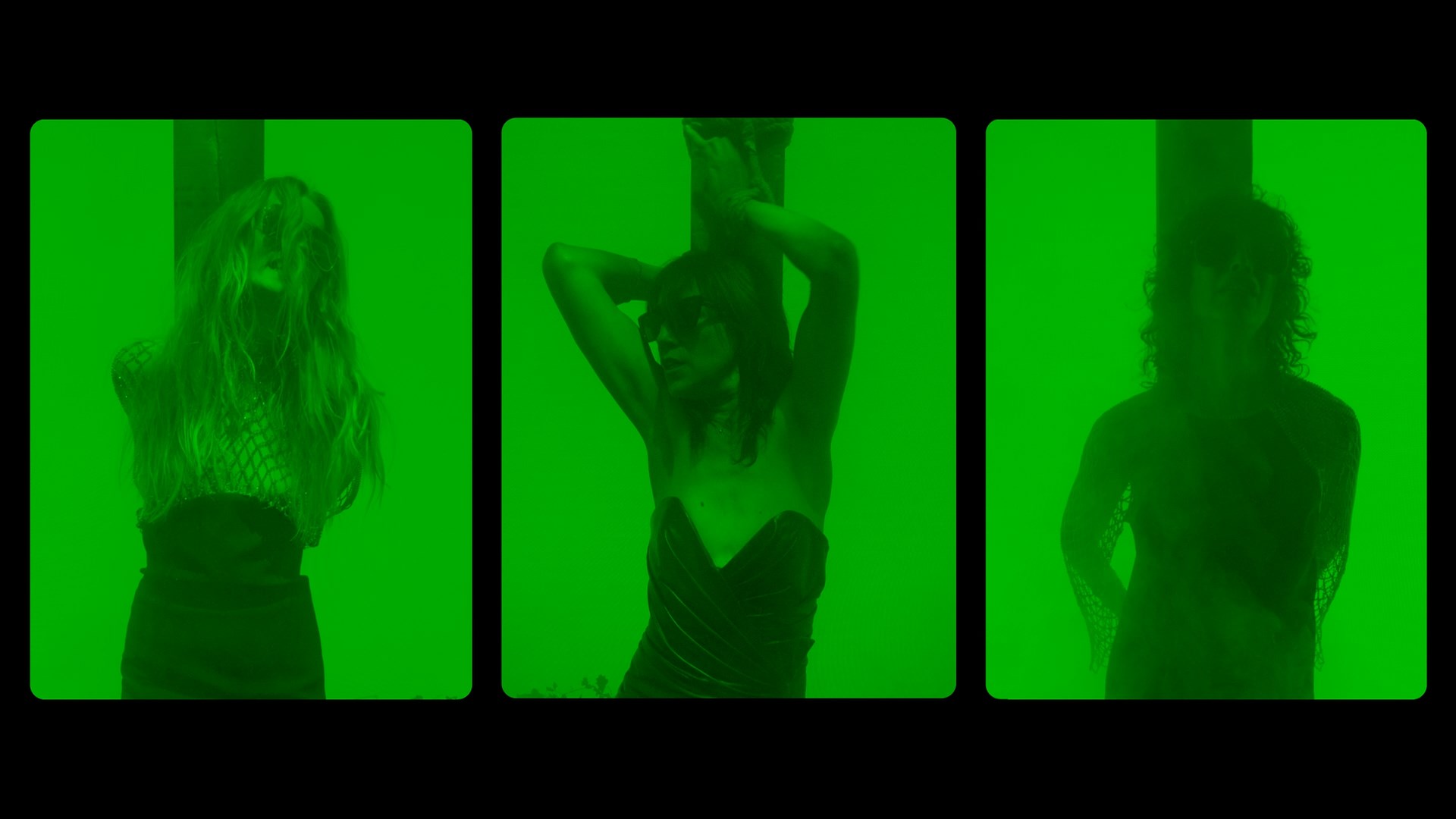 noting
noting 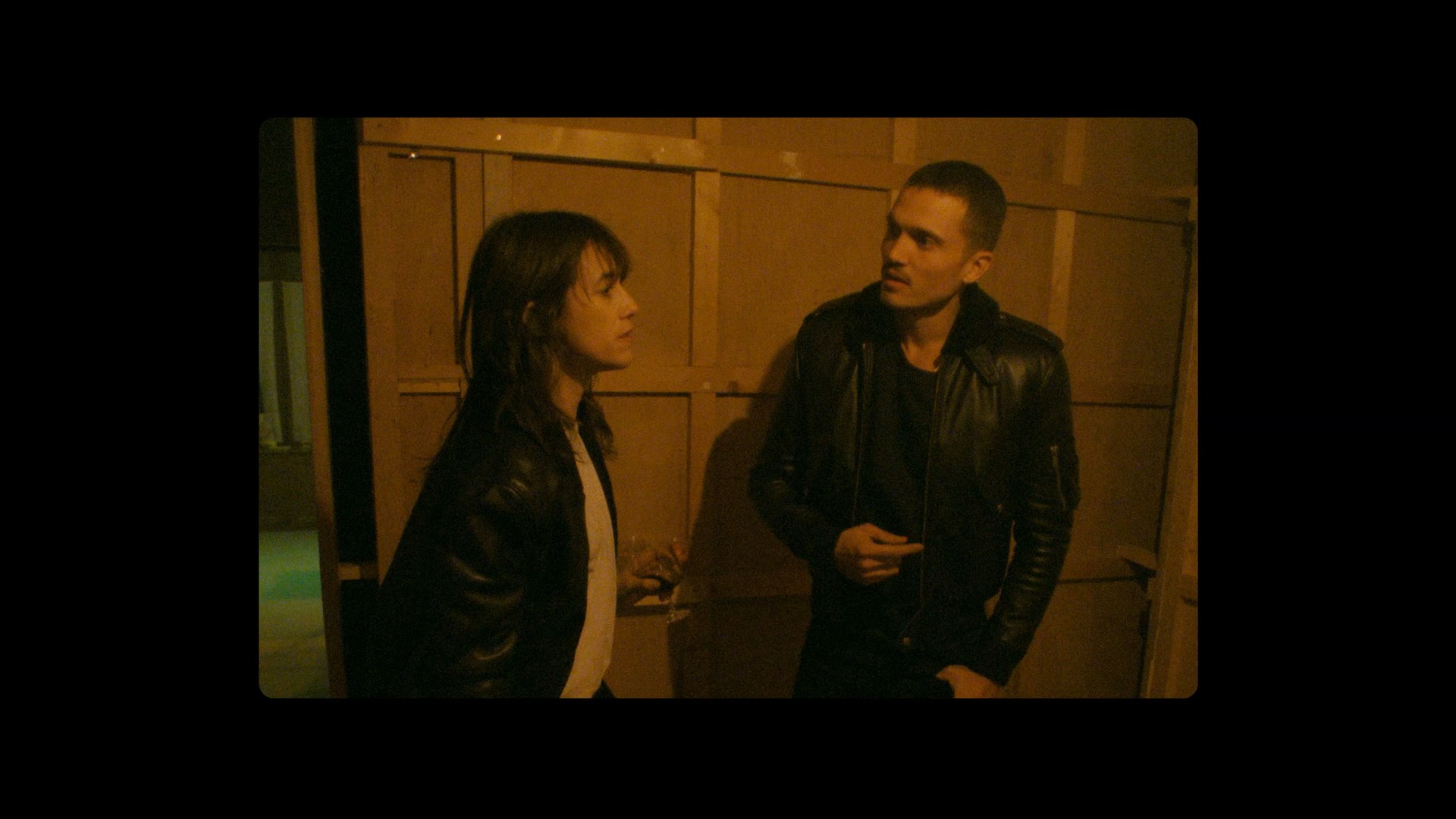 how the process guides the viewer's eye and mind in different ways over the course of this film and narrative storytelling in general. Glusman turns up for a video interview, "Lux in Practicus" (10m31s), about how he and the director came up with his part and figured out how to make it work within the larger framework of the film. Finally disc one wraps up with the theatrical trailer and two teasers.
how the process guides the viewer's eye and mind in different ways over the course of this film and narrative storytelling in general. Glusman turns up for a video interview, "Lux in Practicus" (10m31s), about how he and the director came up with his part and figured out how to make it work within the larger framework of the film. Finally disc one wraps up with the theatrical trailer and two teasers.
Disc two is devoted to four short films that influenced Lux Æterna in some way including The Flicker (see above), followed by Kenneth Anger's 1954 voluptuous occult classic Inauguration of the Pleasure Dome (38m29s) (available earlier on Blu-ray in the U.K. from the BFI). Ray Sharits' 1966 short Ray Gun Virus (14m26s) is another flicker concoction guaranteed to clear out your next movie watching party, while Pier Paolo Pasolini's 1962 La Ricotta (36m) can lay claim as one of the greatest short films ever made. Originally part of the four-film Italian anthology RoGoPaG (once available on U.K. Blu-ray but now out of circulation), it's presented here in an SD upscale but still very much worth a watch with Orson Welles starring as the director of biblical epic in the Italian countryside that goes very, very sideways.
Updated review on July 30, 2022



 anyone who's seen more than one film by French cinema bad boy
anyone who's seen more than one film by French cinema bad boy  Gaspar Noé has some idea of what to expect, be it his early breakthroughs like I Stand Alone and Irreversible to his diffuse and explicit experimental projects Into the Void and Love. Shot quickly just before the pandemic in less than a week, Lux Æterna rests somewhere between a feature and short film, a kind of bridging piece between his dance troupe nightmare Climax and his harrowing split-screen study of old age, Vortex. Mostly though it's a tribute to his two leads, a pair of France's best and most fearless actresses who seem to be having a blast here with a project that was improvised between them and Noé as a kind of meditation on the nature of filmmaking.
Gaspar Noé has some idea of what to expect, be it his early breakthroughs like I Stand Alone and Irreversible to his diffuse and explicit experimental projects Into the Void and Love. Shot quickly just before the pandemic in less than a week, Lux Æterna rests somewhere between a feature and short film, a kind of bridging piece between his dance troupe nightmare Climax and his harrowing split-screen study of old age, Vortex. Mostly though it's a tribute to his two leads, a pair of France's best and most fearless actresses who seem to be having a blast here with a project that was improvised between them and Noé as a kind of meditation on the nature of filmmaking. able to understand the crew), harried assistant director Félix Maritaud, and pest Karl Glusman (returning from Love) who keeps trying to pitch his own project to
able to understand the crew), harried assistant director Félix Maritaud, and pest Karl Glusman (returning from Love) who keeps trying to pitch his own project to  increasingly hostile reactions. Then it's time for the actual shoot with a triple stake burning, which comes right after Gainsbourg has a disturbing phone call about her daughter and soon explodes way out of control. Along the way you get quotes from Dostoyevsky, Dreyer, Fassbinder, Godard, etc. that invite your own interpretations about creative sadism, religion, and gender parity.
increasingly hostile reactions. Then it's time for the actual shoot with a triple stake burning, which comes right after Gainsbourg has a disturbing phone call about her daughter and soon explodes way out of control. Along the way you get quotes from Dostoyevsky, Dreyer, Fassbinder, Godard, etc. that invite your own interpretations about creative sadism, religion, and gender parity. a nicely stacked U.K. release with a wealth of extras. The film itself looks great with wildly stylized colors throughout that get more vivid over the course of the running time, eventually going berserk during
a nicely stacked U.K. release with a wealth of extras. The film itself looks great with wildly stylized colors throughout that get more vivid over the course of the running time, eventually going berserk during  that retina-scorching finale. French DTS-HD MA 5.1 and LPCM 2.0 audio options are included (with optional English and English SDH subtitles), both of which sound great and mostly kick in during the last half hour or so with a lot of surround activity. Noé and Dalle provide a new, very amusing audio commentary in which they riff on the participants, the quote choices, cinematic references, the chemistry between Dalle and the much "shier" Gainsbourg, among other topics. Their rapport is wonderful here, and hopefully they'll work together again. A second track by Kat Ellinger goes more into the portrayals of witchcraft in film and history, the filmmaker nods, her take on the film's
that retina-scorching finale. French DTS-HD MA 5.1 and LPCM 2.0 audio options are included (with optional English and English SDH subtitles), both of which sound great and mostly kick in during the last half hour or so with a lot of surround activity. Noé and Dalle provide a new, very amusing audio commentary in which they riff on the participants, the quote choices, cinematic references, the chemistry between Dalle and the much "shier" Gainsbourg, among other topics. Their rapport is wonderful here, and hopefully they'll work together again. A second track by Kat Ellinger goes more into the portrayals of witchcraft in film and history, the filmmaker nods, her take on the film's  noting
noting  how the process guides the viewer's eye and mind in different ways over the course of this film and narrative storytelling in general. Glusman turns up for a video interview, "Lux in Practicus" (10m31s), about how he and the director came up with his part and figured out how to make it work within the larger framework of the film. Finally disc one wraps up with the theatrical trailer and two teasers.
how the process guides the viewer's eye and mind in different ways over the course of this film and narrative storytelling in general. Glusman turns up for a video interview, "Lux in Practicus" (10m31s), about how he and the director came up with his part and figured out how to make it work within the larger framework of the film. Finally disc one wraps up with the theatrical trailer and two teasers.